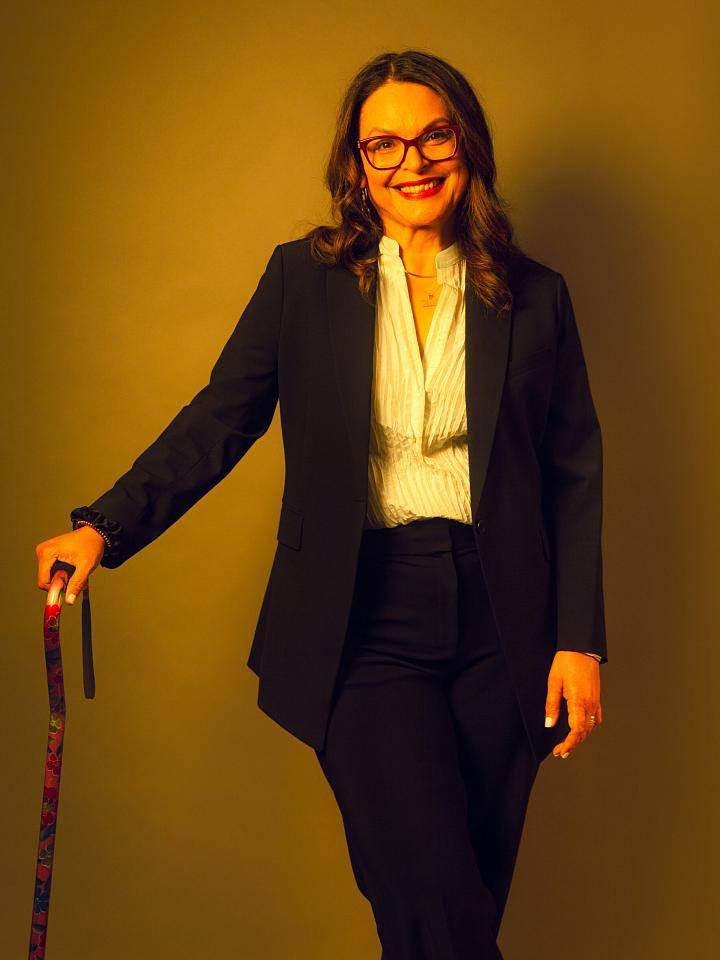
Every March, Women’s History Month is celebrated in the U.S. and around the world. This year, Women in Health, Medicine, and Science (WiHMS) will be running a series throughout the month that highlights women in leadership positions across the health sciences campus.
For this Women in Leadership feature for Women’s History Month 2024, we recognize the work, achievements, and leadership of Dr. Ivette López:
Ivette López, Ph.D., M.P.H.
Director, Utah Area Health Education Centers (AHEC)
Professor, Division of Public Health, Department of Family & Preventive Medicine
Chair, Latinx Advisory Council

What or who inspired you to pursue a career in health sciences?
So many people! Community often inspires me. When I was in my master’s program, there wasn’t another Latino, and not seeing anyone else like you—that lack of representation forced me out into the community. It was hard being the “only one” in the classroom and made me think “Should I be here?”, but I borrowed from the strength and joy of my community to keep going and they were so proud of me. It was a wonderful relationship, and I know how lifesaving and transformative it can be for students, because it was for me.
The most powerful leader I have ever met was my mom. When she was asked to teach art in the school they had little to no budget, but she was very innovative and could see the possibility in everything! At home, as soon as you would finish with a can, she would take it right from you and had a use for it. Growing up there were so many ways she encouraged strategic thinking. I learned from her that there is always a way to do something even if I haven’t figured it out yet.
What are the challenges of being a leader?
There can be a rush to judgement that new ideas or structures are not as good as traditional or standard ways, but we always need to give them a chance. Some people might put up imaginary milestones for you to meet and have higher than normal expectations of you as a woman doing “the job of a man.” As a woman and a minority, I was told you have to be willing to work three or four times as hard to get where you want to go.
I always see innovation in things, which has its fans but has detractors too. Having a different point of view as a woman and as a minority, I can’t help but see things from different angles and perspectives. In the end though, it is for the benefit of all of us and to get a good job done.
What are the highlights of being a woman leader in health sciences?
With AHEC (Area Health Education Centers), we are creating the future workforce in all health professions for the entire State of Utah. I love getting to work with developing and helping shape the next generation of the workforce, and I want more for whoever comes after me and to exceed what I have been able to accomplish.
I will tell students they could be anything, they can be the Secretary of Health; and most say “Yea, OK” but I always say it because you never know who it might encourage. I seek out opportunities for students to expose them to important scenarios and understand the experience of being in a minority in certain places because if we do not have an understanding of diversity then how do we teach the depth of learned experience?
Please share with us some advice from what you have learned along the way.
Knowing has gotten me where I am more than anything. Being in the trenches, my ability to explain things, and being recognized as that go-to person has helped me in everything from Professor to AHEC Director, to engaging CHWs in teaching communities to stay as healthy as possible.
We often are in leadership roles or displaying leadership skills, but they don’t get labeled that way. The ability to engage with folks in a more compassionate and empathetic way is absolutely needed in a leader. Listening to people is the best skill that we have.